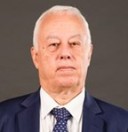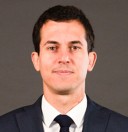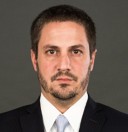Single Licenses are granted by the ENACOM. ENACOM does not have the authority to deny a license if the application meets all the requirements. One the License is acquired, the licensee can request a Registration of Services, by which they are able to provide the registered services. To register services, no technical, legal, or economic support documents must be filed, only a simple petition.
Once the license and registration are granted by ENACOM, the licensee is required to provide the registered services within 24 months from the date of registration, permit the interconnection of its networks to any provider that requests the interconnection as established by the National Interconnection Rule; and provide information about traffic, total revenues and other information related to the geographical coverage area, to ENACOM.
Single Licenses are granted to both domestic and foreign companies (branches of foreign companies that are registered to conduct business in Argentina). There are no restrictions on foreign participation in the capital of the licensee. A completely foreign-owned company, if locally registered or a branch of a foreign company, can qualify for a license and a spectrum permit.
The Single License can be obtained upon filing the following information with ENACOM:
- Full legal name, Articles of Incorporation, Bylaws, Minutes of designation of valid authorities duly registered with the corresponding registries;
- Principal place of business and address in which legal notices shall be deemed duly given by ENACOM;
- An affidavit indicating that the applicant and its shareholders are not subject to any incompatibility;
- An affidavit assuring the compliance with the standards and technical specifications regarding telecommunications equipment and devices.
To hold a spectrum permit, the process depends on whether the spectrum authorization is granted by auction or by direct award. Radio spectrum can be assigned to service providers through public auctions, bidding processes (when there is a shortage of band frequencies), or upon demand. When a request to use a frequency band is filed with the ENACOM, it shall publish the frequency band requested in the Official Gazette, establishing a period of 15 days for third parties to have the opportunity to give evidence of their interest of said frequency band. If there are more interested parties registered than bands of frequencies available for authorization or if a shortage of frequencies is foreseen, the authorization for the use of a frequency band will be made through public auctions. If there are no third parties interested in a particular frequency band other than the one that has filed a request or if there is no shortage of frequencies foreseen, authorizations will be granted on demand.
Service Licences
Unless exempted, no person may provide ECS or ECNS without a licence. Depending on the scope of the services, either an individual or class service licence will be required. Applications for licenses will not be considered unless the applicant is a South African citizen (in the case of a natural person) or a juristic person registered in South Africa and which has its principal place of business in South Africa.
The ECA requires that ICASA must, in granting any service licence, ensure that the services, viewed collectively, are provided by persons or groups of persons from a diverse range of communities in South Africa. ICASA is also required to promote broad-based black economic empowerment when considering licence applications.
An application for an individual licence may only be made in response to an Invitation to Apply (‘ITA’) issued by ICASA. ICASA may only issue an ITA pursuant to a Ministerial policy direction. It is unlikely that an ITA will be issued for either individual ECS or individual ECNS in the foreseeable future.
Applicants for individual licences must demonstrate to ICASA that at least 30% of the applicant is owned by historically disadvantaged individuals. The term “historically disadvantaged individuals or groups” is not defined in the ECA or the ICASA Act or any regulations but it is taken to include black people, women, the youth and people with disabilities.
The processes and procedures applicable to individual ECNS licence applications are contained in the Regulations regarding the Processes and Procedures for Applications for an Individual Licence to Provide Electronic Communications Network Services, Electronic Communications Services and Broadcasting Services and for Temporary Special Authorisations and Matters Pertaining Thereto, 2008.
The standard terms and conditions applicable to individual ECNS licensees are contained in the Regulations Regarding Standard Terms and Conditions for Individual Licences, 2010. An individual licence endures for twenty years and the licence may be renewed upon application to ICASA. ICASA may refuse to grant the application for renewal if the ownership and control of the applicant by historically disadvantaged persons is less than 30%.
A class licence may be obtained by registration and application can be made at any time. The processes and the procedures applicable to the registration of class licences are contained in Processes and Procedures for Applications for an Individual Licence to Provide Electronic Communications Network Services, Electronic Communications Services and Broadcasting Services and for Temporary Special Authorisations and Matters Pertaining Thereto, 2008. ICASA is required to process the application within 30 days unless it notifies the applicant otherwise. The standard terms and conditions applicable to class licences are set out in the Regulations Regarding Standard Terms and Conditions for Class Licences, 2010. A class licence endures for ten years and a licensee can apply to have its licence renewed upon application. ICASA’s decisions are not contingent upon ownership by historically disadvantaged persons.
The requirements for individual and class service licences are elaborated upon below:
- Individual ECNS licence (issued for 20 years): An individual ECNS licence is required for ECNs of provincial and national scope operated for commercial purposes.
- Class ECNS licence (issued for 10 years): A class ECNS is required for ECNS of district municipality or local municipal scope operated for commercial purpose South Africa has 48 district municipalities and 231 local municipalities as well as 7 metropolitan municipalities.
- Individual ECS (issued for 20 years): An individual licence is required to provide ECS that consists of voice telephony utilising numbers from the national numbering plan. An individual service licensee may provide all forms of electronic communications in addition to voice telephony and there is no is restriction on the geographical scope of the services. It is the use of numbers from the national numbering plan that triggers the individual licence requirement. An individual ECS licensee can make use of its own ECN if it holds the requisite ECN licence or it can enter into agreements with third party ECNS licensee to carry the services to the customer.
- Class ECS (issued for 10 years): A class licence is required to provide ECS that does not make use of numbers from the national numbering plan. This licence allows the holder to provide the same services as those authorised in terms of and individual ECS licence, including voice services. As is the case with individual ECS licensees, a class ECS licensee can make use of its own ECN if it holds the requisite licence or it can enter into agreements with third party ECNS licensees to carry the services to the customer.
Radio Frequency Spectrum Licences
Absent an exemption, no person may make use of the radio frequency spectrum without a licence issued by ICASA. The Radio Frequency Spectrum Regulations, mentioned above, are applicable.
A standard application procedure is applicable to radio frequency spectrum used for the services listed in annexure C to the Radio Frequency Spectrum Regulations. These include amateur radio, frequencies above 40 GHz, microwave point to point, citizen band radio and satellite bands direct links.
An extended application procedure is required for all other radio frequency spectrum licences and for frequency bands which are the subject of an ITA. An ITA will be published where ICASA determines that the radio frequency spectrum concerned is insufficient to meet demand.
Radio frequency spectrum licences that are the subject of an ITA are awarded on a competitive basis. An applicant for a radio frequency spectrum licence that is the subject of an ITA will be disqualified unless it can show that it has a minimum 30% equity ownership held by persons from historically disadvantaged groups or is a level 4 Broad-Based Black Economic Empowerment contributor.
Service Licence Exemptions
The ECA permits ICASA to prescribe regulations regarding the types of ECNS, ECNs, and ECS that may be provided without a licence. ICASA may also prescribe the radio frequency spectrum that may be used without a licence.
In terms of the Regulations Regarding Licence Exempt ECN, ECNS and ECS, 2008, (‘Licence Exemption Regulations’) the following persons providing ECS may apply for a licence exemption:
- persons providing ECS on a non-profit basis;
- resellers of ECS obtained from a licensed ECS; and
- persons providing an ancillary service (i.e. a retail service which incorporates ECS elements that do not constitute the major purpose, utility or value of the retail services, for example, tracking, alarm and similar services).
In terms of the Licence Exemption Regulations, the following ECNs are exempt from licensing:
- small electronic networks, provided that small electronic networks must use frequencies that are licence exempt; and
- private electronic networks.
Argentina is the third-largest economy in Latin America. Although it benefits from a wealth of natural resources, a diversified industrial base and a highly skilled labor force, statist and interventionist policies expose the economy to persistent boom-bust cycles. It is the fourth more populated country in Latin America and one of the countries with the highest penetration of mobile services.
The Government Body in charge of the control of the telecom and media industry is the National Entity of Communications (“ENACOM”), an autonomous and decentralized entity. It is in charge of the application of the Digital Argentina Law 27,078, Audio-visual Services Law 26,522, and related regulations.
Also, the Undersecretary of Telecommunications and Connectivity is in charge of the dictation of regulation about telecommunications.
Both entities are on the Federal Government. States and localities have no authority for regulation of the services, they only request a permit for the installation of telecommunications infrastructure.
The main regulations applicable to the ICT sector are:
- Digital Argentina Law 27,078,
- Audio-visual Services Law 26,522,
- Decree 764/2000 (Spectrum),
- Decree 690/2020 (Price Regulation),
- Decree 588/2008 (Universal Service),
- Resolution 286/2018 (Interconnection),
- Resolution 697/2018 (Licenses),
- Consumer Protection Law 24,240.
The Licensing Regulation rules licenses, resale services, serving areas, obligations of the licensee to other licensees, to customers, and to the Regulator. The regulations set a Single License System that allows the licensee to provide any kind of telecommunication services (fixed or mobile, wired or wireless, national or international). Licenses are granted without a term limit, on demand, with a national scope, and with freedom of choice on technology and investments.
Spectrum regulation establishes that the spectrum is a public domain property, and it is granted on a precarious basis. The bandwidth to be granted must be related with the services to be provided. The bands are granted on demand or by a public auction.
The pricing regulation of telecommunications services had established “fair and reasonable” prices, which meant unregulated prices, until the Decree 690/20 was enacted. This Decree states that the prices will be reasonable, fair, must cover the operation expenses, assure a reasonable profit margin, and that they will be “regulated” by the Authority.
This Decree, enacted in August 2020, prohibited raising prices until December 2020, and subsequent resolutions of the Authority allowed higher prices since that date. But these resolutions and the Decree were challenged in the courts, and a lot of companies (Telecom, Telefónica, Directv, Telecentro, TV Cable Color, etc.) received precautionary measures in their favor, halting the price regulation and consequently allowing price freedom again.
ENACOM
Perú 103, Ciudad de Buenos Aires, ZIP C1067AAA.
+5411 4349-9145
Undersecretary of Telecommunications and Connectivity
Roque Sáenz Peña 788. ZIP C1067AAC.
+5411 4347-9200
Any natural or legal person providing any ICT service (such as Fixed or Mobile Telephone, Internet Access - fixed, mobile, satellite etc.) or media services (cable or wireless TV, radio), is subject to ENACOM regulations.
On the other hand, services provided through Internet only (WhatsApp, Skype, Zoom, Netflix, etc.) are not subject to these regulations.
Single Licenses are granted by the ENACOM. ENACOM does not have the authority to deny a license if the application meets all the requirements. One the License is acquired, the licensee can request a Registration of Services, by which they are able to provide the registered services. To register services, no technical, legal, or economic support documents must be filed, only a simple petition.
Once the license and registration are granted by ENACOM, the licensee is required to provide the registered services within 24 months from the date of registration, permit the interconnection of its networks to any provider that requests the interconnection as established by the National Interconnection Rule; and provide information about traffic, total revenues and other information related to the geographical coverage area, to ENACOM.
Single Licenses are granted to both domestic and foreign companies (branches of foreign companies that are registered to conduct business in Argentina). There are no restrictions on foreign participation in the capital of the licensee. A completely foreign-owned company, if locally registered or a branch of a foreign company, can qualify for a license and a spectrum permit.
The Single License can be obtained upon filing the following information with ENACOM:
- Full legal name, Articles of Incorporation, Bylaws, Minutes of designation of valid authorities duly registered with the corresponding registries;
- Principal place of business and address in which legal notices shall be deemed duly given by ENACOM;
- An affidavit indicating that the applicant and its shareholders are not subject to any incompatibility;
- An affidavit assuring the compliance with the standards and technical specifications regarding telecommunications equipment and devices.
To hold a spectrum permit, the process depends on whether the spectrum authorization is granted by auction or by direct award. Radio spectrum can be assigned to service providers through public auctions, bidding processes (when there is a shortage of band frequencies), or upon demand. When a request to use a frequency band is filed with the ENACOM, it shall publish the frequency band requested in the Official Gazette, establishing a period of 15 days for third parties to have the opportunity to give evidence of their interest of said frequency band. If there are more interested parties registered than bands of frequencies available for authorization or if a shortage of frequencies is foreseen, the authorization for the use of a frequency band will be made through public auctions. If there are no third parties interested in a particular frequency band other than the one that has filed a request or if there is no shortage of frequencies foreseen, authorizations will be granted on demand.
A licensee must be incorporated in Argentina or have a registered branch office in Argentina.
The Interconnection Rules provides licensees with a right to interconnect. Licensees must seek to negotiate, in good faith, requests for interconnection at any technically feasible point. Any party may refer a dispute regarding interconnection or access to ENACOM for resolution if no agreement is reached. Licensees with Significant Market Power must publish a Reference Offer.
There are many mandatory matters to be addressed in the interconnection agreement such as: tariffs and invoicing systems, technical and operational matters, etc.
Domestic inter-carrier roaming is not mandatory and is regulated through commercial agreements reached between the relevant carriers.
Consumer regulations states that licensees must provide to the consumer all the information related to the service, in Spanish, in a clear, detailed, free of cost manner. On the website and in the stores, it must be informed:
- The consumer’s rights recognized by this Rule,
- The standard contract filed to the ENACOM,
- The address and free phone number of Customer Service of both the company and the Regulator, and the procedure to file claims,
- Details and prices of the services,
- Covered areas,
- Terms for the reception of messages with ads,
- Procedure to unsubscribe from content services (must be the same as the procedure to subscribe),
- Policies about recycling and final disposition of electronic waste, of electronics used for the service.
Besides, the licensee must publish information about the speed, quality of the link, type of services, on a site that must be linked to the main site of the company. For each type of service, the licensee must inform commercial characteristics of the service, speed, downloads limits, oversubscription rate, technical standards of quality service, resetting operation time, quality and availability of links, and network management measures.
The cost of the License is USD 100. There is no cost for the registration of specific services.
Telecom services providers must pay:
- the Control, Inspection, and Verification fee: 0.50% of the total income accrued for the provision of services, net of taxes, and charges.
- the contribution to the Universal Service Trust Fund: 1% of the total income accrued for the provision of services, net of the taxes and charges.
- payment for the use of the radio spectrum.
ENACOM can impose fines for breaking the federal regulations and consumer regulations.
Both federal and local Consumer Protection offices can impose fines for breaking Consumer Protection laws.
Fines, closure, confiscation of the products, can be imposed by Consumer Protection Offices.
ENACOM can impose fines, closure, administrative precautionary measures about ceasing to operate, and in the most serious cases, the penalty could be the termination of the Register.




